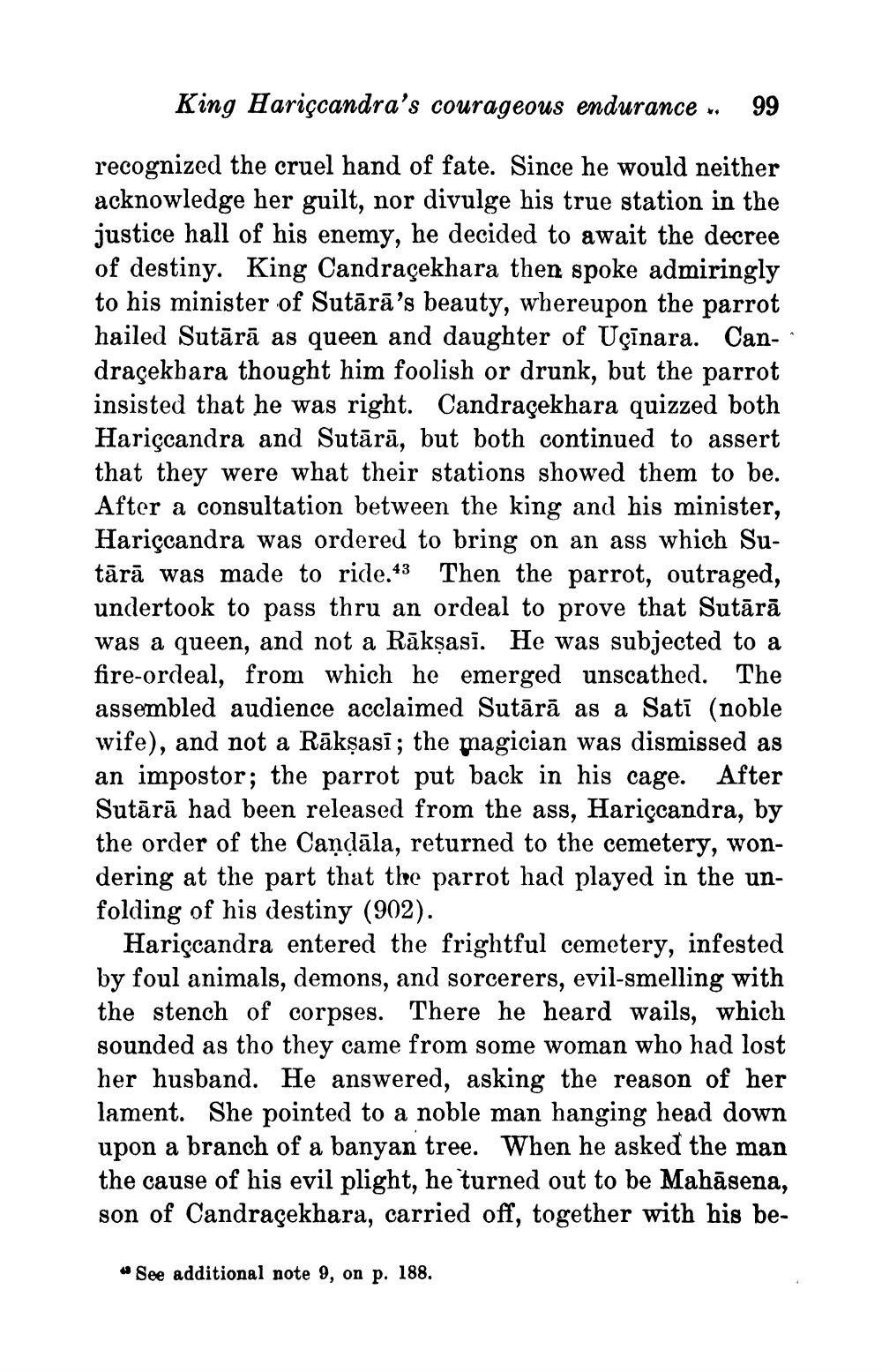________________
King Hariçcandra's courageous endurance -
99
recognized the cruel hand of fate. Since he would neither acknowledge her guilt, nor divulge his true station in the justice hall of his enemy, he decided to await the decree of destiny. King Candraçekhara then spoke admiringly to his minister of Sutārā's beauty, whereupon the parrot hailed Sutārā as queen and daughter of Uçīnara. Can-^ draçekbara thought him foolish or drunk, but the parrot insisted that he was right. Candrasekhara quizzed both Hariçcandra and Sutārā, but both continued to assert that they were what their stations showed them to be. After a consultation between the king and his minister, Hariccandra was ordered to bring on an ass which Sutārā was made to ride. 43 Then the parrot, outraged, undertook to pass thru an ordeal to prove that Sutārā was a queen, and not a Rākṣasī. He was subjected to a fire-ordeal, from which he emerged unscathed. The assembled audience acclaimed Sutārā as a Satī (noble wife), and not a Rākşası; the magician was dismissed as an impostor; the parrot put back in his cage. After Sutārā had been released from the ass, Hariçcandra, by the order of the Caņdāla, returned to the cemetery, wondering at the part that the parrot had played in the unfolding of his destiny (902).
Hariccandra entered the frightful cemetery, infested by foul animals, demons, and sorcerers, evil-smelling with the stench of corpses. There he heard wails, which sounded as tho they came from some woman who had lost her husband. He answered, asking the reason of her lament. She pointed to a noble man hanging head down upon a branch of a banyan tree. When he asked the man the cause of his evil plight, he turned out to be Mahāsena, son of Candraçekhara, carried off, together with his be
" See additional note 9, on p. 188.




